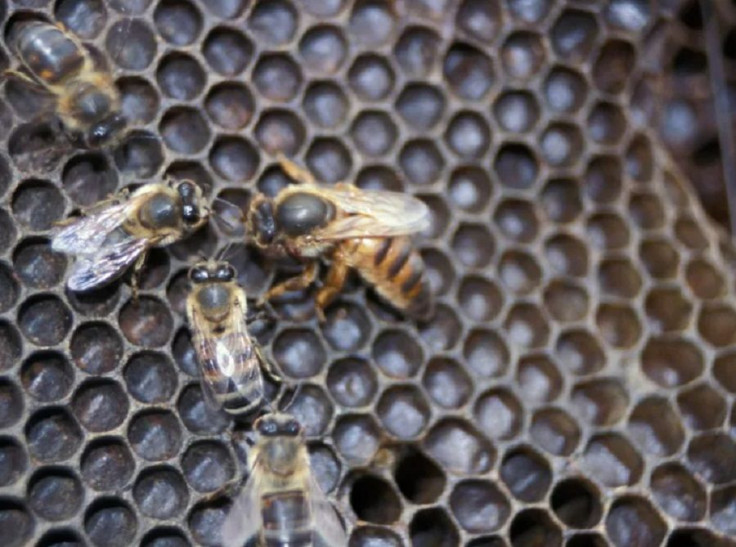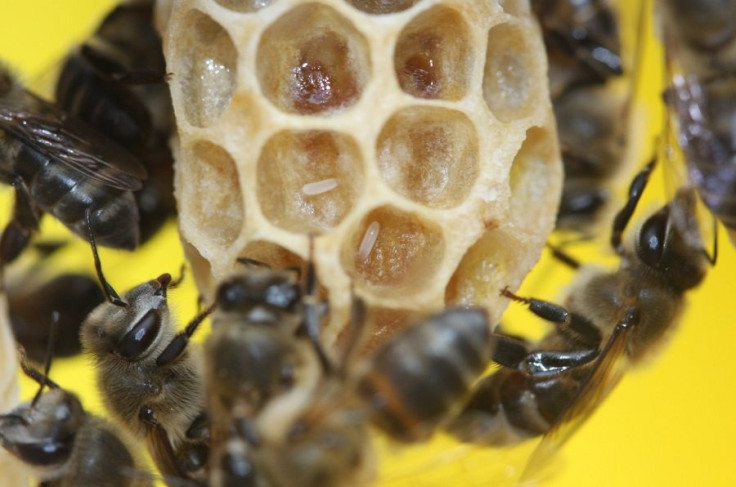Researchers Identify Cape Honey Bee Gene Responsible For 'Virgin Births'
KEY POINTS
- Researchers identified the gene responsible for Cape honey bees' 'virgin birth'
- Worker Cape honey bees can lay female eggs despite being unable to mate
- This can cause problems when even the workers can produce the next queen
Researchers of a new study identified the gene responsible for Cape honey bees' capability for "virgin births." Although this trait has been known for more than a hundred years, it was only through modern genetic tools researchers were able to discover the responsible gene.
The Cape honey bee (Apis mellifera capensis) is a subspecies of the western honey bee (Apis mellifera) that naturally occurs in the Cape region of South Africa. Although they look rather similar to other Apis mellifera subspecies, they significantly differ in reproduction.
Generally, Cape honey bees reproduce in the same way other honey bee subspecies do, in that the queen's unfertilized eggs become haploids (male drone) while the fertilized eggs become diploids (female worker or queen). If a honey bee colony loses its queen and is at risk of dying, some workers' ovaries will develop. However, since they are unable to mate and have their eggs fertilized, they end up producing males that can then mate with queens in other colonies.
In Cape honey bees, however, the workers can produce both male and female offspring even without mating. The female offspring can then go on to become a worker or the new colony queen.
This capability, called "thelytokous parthenogenesis," is restricted to a single honeybee subspecies in the Cape region of South Africa, and has been known to science for more than a hundred years. However, it is only now that researchers have identified that exact gene responsible for such "virgin births" - GB45239 on chromosome 11 .
"Scientists have been looking for this gene for the last 30 years. Now that we know it's on chromosome 11, we have solved a mystery," study co-author and behavioral geneticist Professor Benjamin Oldroyd said in the news release from The University of Sydney, Australia. "Sex is a weird way to reproduce and yet it is the most common form of reproduction for animals and plants on the planet. It's a major biological mystery why there is so much sex going on and it doesn't make evolutionary sense. Asexuality is a much more efficient way to reproduce, and every now and then we see a species revert to it."

However, Oldroyd explained the unique trait can also cause problems. Specifically, having female workers capable of essentially producing a genetic pseudo-clone of themselves to be the next queen can cause conflict within the colony because of the competition.
Further, since Cape honey bee workers have larger and more "activated" ovaries, their ability to produce queen pheromones allows them to engage in "social parasitism" wherein they invade other colonies, reproduce, and "persuade" the workers of that colony to take care of their larvae.
This behavior kills 10,000 colonies of commercial beehives in South Africa every year.
"This is a bee we must keep out of Australia," Oldroyd said.

"Further study of Cape bees could give us insight into two major evolutionary transitions: the origin of sex and the origin of animal societies," Professor Oldroyd said. "If we could control a switch that allows animals to reproduce asexually, that would have important applications in agriculture, biotechnology and many other fields."
The study is published in the journal Current Biology.
© Copyright IBTimes 2024. All rights reserved.





















